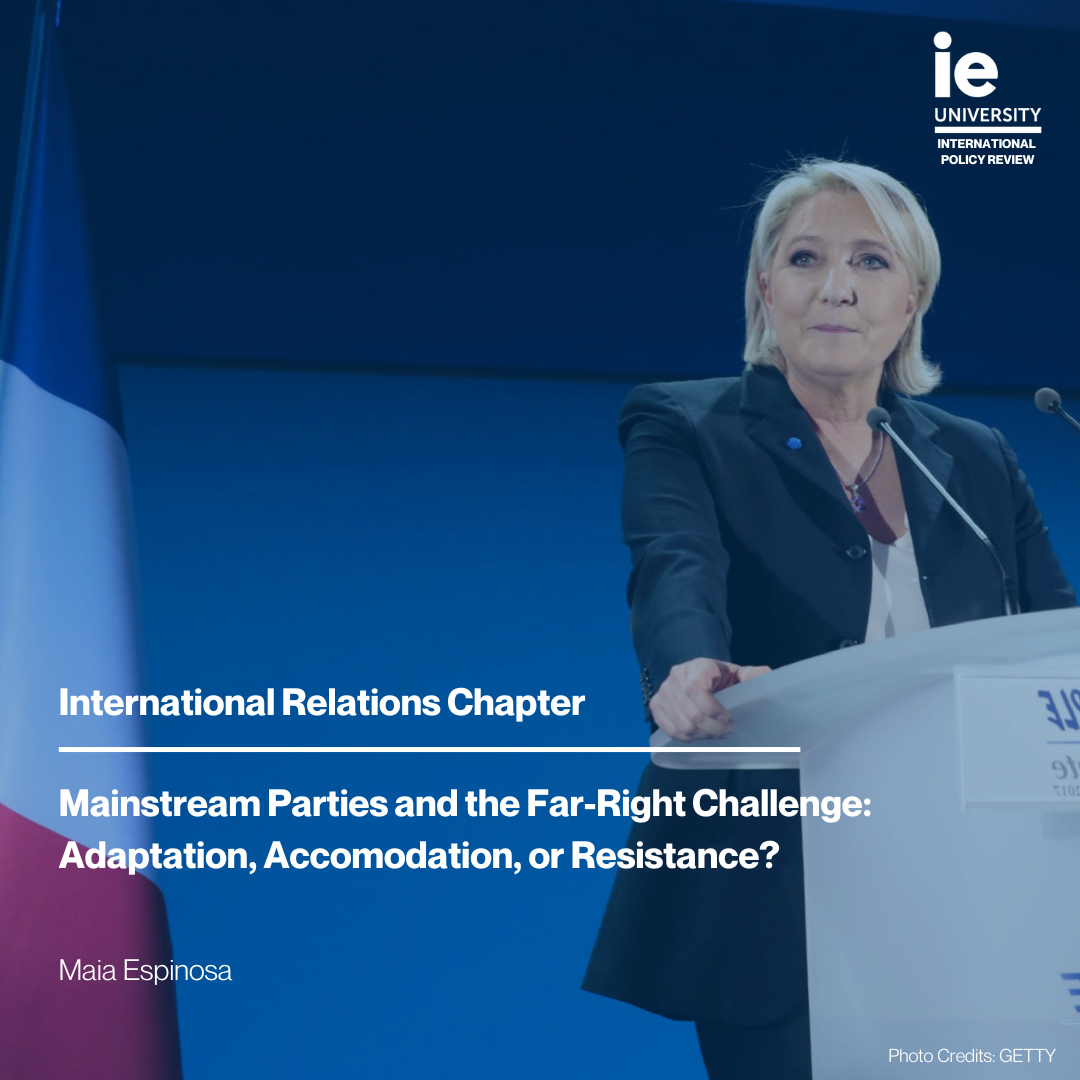
27 Jun Mainstream Parties and the Far-Right Challenge: Adaptation, Accommodation, or Resistance?
Maïa Espinosa
Law School, IE University, Madrid, Spain.
Dual Degree in Politics, Philosophy, Law and Economics and Law.
E-mail: mespinosa.ieu2020@student.ie.edu
Abstract
The significant emergence of far-right parties across Europe over the last decade has fundamentally altered the political landscape, creating substantial challenges for established mainstream political parties in terms of governance, ideology, and electoral competition. This paper undertakes an in-depth examination of how these mainstream parties in three key European nations Spain, France, and Germany, have responded to the growing influence of far-right movements. Focusing on specific party responses categorized as adaptation, accommodation, or resistance, the study utilizes recent political developments and electoral outcomes as case studies. The analysis reveals that pure resistance strategies, while attempting to uphold traditional principles and, in Germany’s case, exclude the far-right from government through a cordon sanitaire, have not prevented their sustained electoral growth. Conversely, instances of adaptation and accommodation, observed to varying degrees in Spain and France, have often led to internal party divisions, blurred ideological boundaries with extremist groups, and failed to consistently deliver the desired electoral benefits, sometimes even alienating moderate voters. Spain’s experience highlights the difficulties faced by a left-wing party attempting to resist the far-right while navigating a fragmented political environment requiring complex coalition-building. These diverse strategic choices have resulted in increased political fragmentation, heightened governmental instability, and a concerning mainstreaming of far-right discourse and policy preferences. Drawing on these findings, the paper concludes by arguing that effectively countering the far-right’s appeal and safeguarding democratic norms requires mainstream parties to articulate clear and principled ideological alternatives, actively avoid mirroring extremist rhetoric, and build strategic alliances with like-minded political forces and civil society organizations to present a united and inclusive front against divisive populism.
READ THE FULL ARTICLE HERE
Keywords: Far-right, Mainstream Parties, European Politics, Political Strategy, Democratic Stability.

Sorry, the comment form is closed at this time.